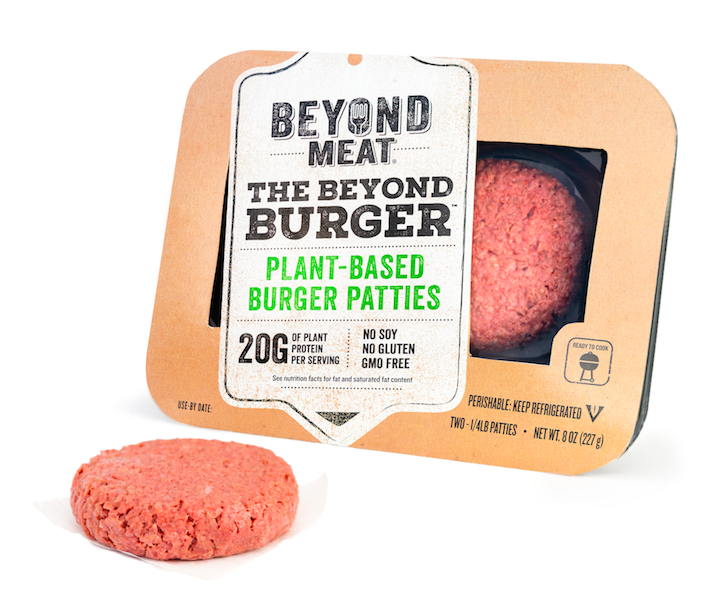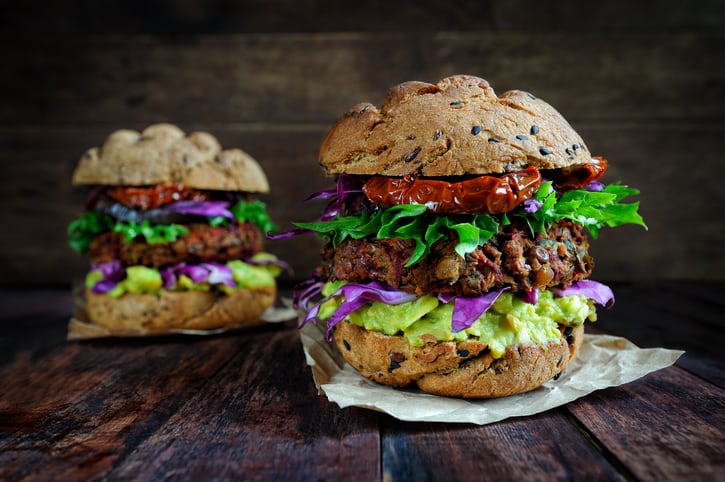Non-profit organisation, the GFI works with scientists, investors, entrepreneurs and food marketers to make the food system more sustainable by promoting plant-based alternatives and clean meat.
“We recommend companies avoid any ‘v’ word and focus instead on the health value of the product, the protein content and so on," co-founder and executive director Bruce Friedrich told FoodNavigator.

“Labelling a product ‘vegan’ or ‘vegetarian’ is taken to mean it is only for vegans or vegetarians."
Researchers at the London School of Economics found that when vegetarian items were moved from the menu's vegetarian section and listed on the main section, sales went up by more than double (56%).
“They were still labelled with a (v), but it is probably the case that being in an entirely separate section of the menu caused people who were not vegetarians to not even consider them. Absent that (v) and we suspect that sales would have gone up even more.”
“My guess is that if ‘vegetarian’ and ‘vegan’ represent distinct populations, then those would not be the most inclusive way to market a product," he said. "In terms of marketing, ‘plant-based protein’ seems to be the current consensus term for reaching non-vegetarians.”

Many of the biggest names in plant-based eating in the US, where demand outpaces that in Europe, are already following this rule.
US free-from manufacturer Gardein labels its products ‘meat-free’ while Beyond Meat uses ‘plant-based’ with a small ‘V’ on pack and Hampton Creek doesn’t have a ‘V’ anywhere on its vegan Just Mayo.
“Other companies recently on the market or coming soon are avoiding ‘V’ words at GFI’s suggestion,” Friedrich added.
On this side of the Atlantic, the UK's two biggest retailers, Tesco and Sainsbury's, launched private label vegan ranges earlier this month after seeing demand for meat- and dairy-free chilled foods jump by up to 25%. Both ranges lack front-of-pack vegan branding or labelling.
Vegans will find the products anyway
Friedrich said brands are unlikely to lose out on vegan shoppers by doing so.
“Vegans are sure to find any appropriate product – they don’t need special labelling,” he said.
However, the European Vegetarian Union (EVU) may disagree. Its ‘V’ logo allows vegan consumers to quickly navigate supermarket shelves, it said.
Public affairs officer Ronja Berthold told us earlier this month: "We’re always happy when new veggie products are being launched. [...] More and more customers are actively looking for plant based options, but at the same time are facing the problem of a lack of information for ingredients of animal origin. Vegan and vegetarian labels provide guidance and security and make it a lot easier to purchase plant based products."
Go for indulgent descriptions
Another way to boost sales of plant-based foods is to describe them in an indulgent way.
Scientists at Stanford University found that 'sweet sizzlin’ green beans' and 'zesty ginger-turmeric sweet potatoes' consistently sold more portions than plain-labelled green beans and sweet potatoes – even if there was no difference in the preparation.
The two UK retail giants certainly seem to have opted for this marketing strategy in their vegan ranges.

Sainsbury’s is selling a ‘sweet and smoky BBQ pulled jackfruit’ and Tesco has ‘Teriyaki-style noodles with […] sweet ‘n’ savoury glaze, Asian-style vegetables and tangy lime.’
However, retailers and manufacturers in other European countries may want to do an additional market study before launching any products.
According to lead author of the Stanford study Bradley Turnwald, the appeal of indulgent descriptors could vary from region to region.
“Lab studies in America also show that adding a health label to foods leads people to say that the food tastes worse, is less filling, and less enjoyable compared to when that food is not labelled as healthy.
“Interestingly, this association seems to be reversed in France - [...] the French associate healthy food with being tasty,” he said, referring to a 2012 study which found that French people spontaneously associate unhealthy food with bad taste while healthy food is linked to tastiness.
Want to know which plant-based ingredients would work best in your product? Or how to market your meat-free range?
Sign up for Protein Vision, a three-day event in Amsterdam in March 2018 where trailblazing entrepreneurs, food formulation experts and top industry players will gather to discuss all facets of the global movement for healthy, sustainable protein.
